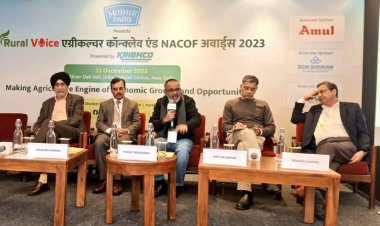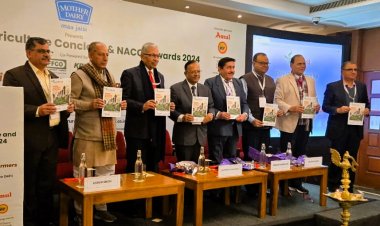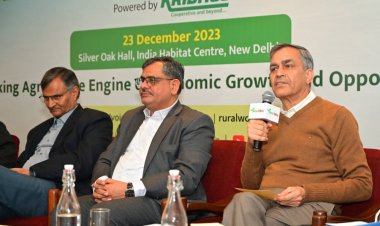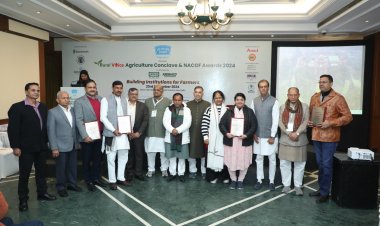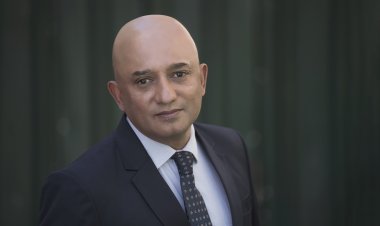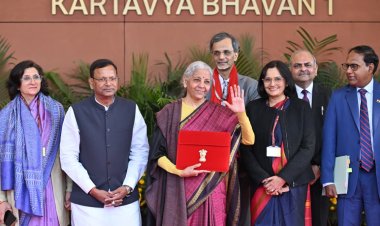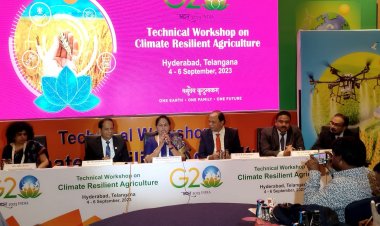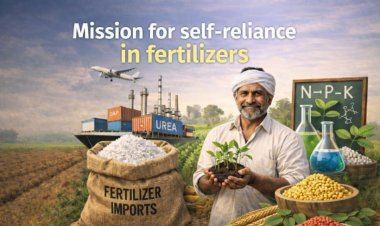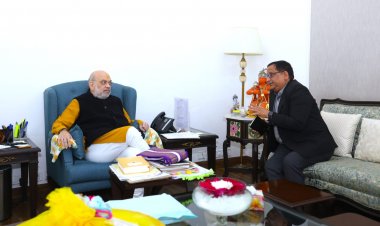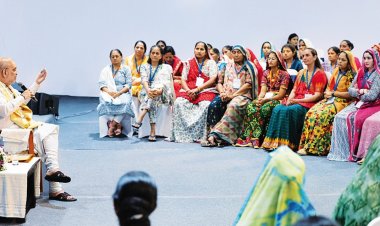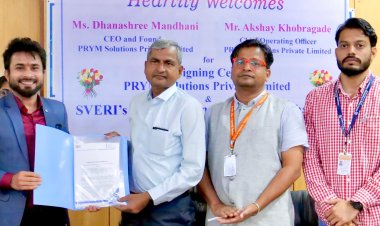Top experts brainstorm on critical issues before agri sector in Amrit Kaal
The country’s top agricultural experts brainstormed on all critical issues facing India’s agriculture sector on the road ahead for the next 25 years at a seminar jointly organized by the Bharat Krishak Samaj, a leading farmers’ organisation, and Rural Voice, a digital news platform primarily focused on agricultural and rural sectors.
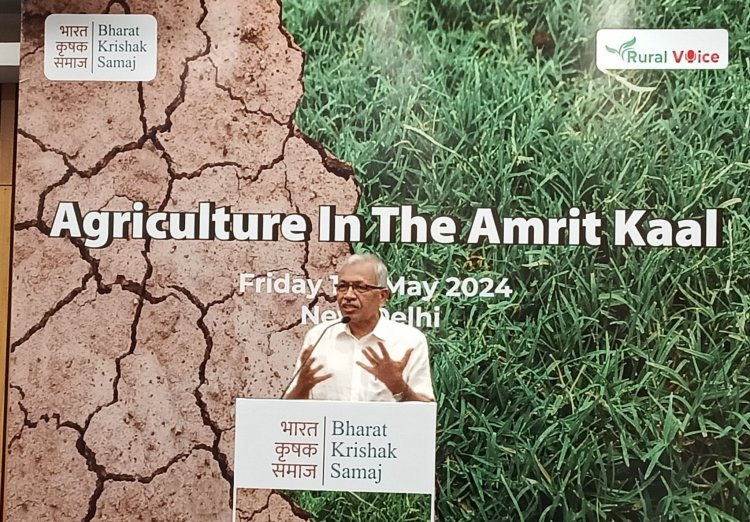
The country’s top agricultural experts brainstormed on all critical issues facing India’s agriculture sector on the road ahead for the next 25 years at a seminar jointly organized by the Bharat Krishak Samaj, a leading farmers’ organisation, and Rural Voice, a digital news platform primarily focused on agricultural and rural sectors.
The conference on the topic “Agriculture in the Amrit Kaal” saw speakers dwelling at length on issues like water, power, technology, digitalization and marketing at the day-long deliberations at the India International Centre in New Delhi on May 17.
Wrapping up the animated discussions, former Union Agriculture Secretary T Nand Kumar spoke on ‘Policy and Governance’ and said policy framing has to be made on the basis of major decisions taken at various levels.
The agriculture policy, he said, should be farmer-centric “but without ignoring vital issues like food security and nutrition.
He said during the ongoing Lok Sabha elections, various political parties make different promises to lure the farmers, be it the issue of MSP, or free power for irrigation, or free food grains, but once they come to power, they will face difficulty in keeping their words.
Kumar said farmers should enjoy a certain degree of freedom. Though they need some amount of handholding, their needs should be taken into consideration while framing the agriculture policy.
The former bureaucrat said there are instances of the government taking “trigger-happy measures” like imposing a ban on export of certain farm produce. Export ban is not an answer to check prices, the question is “what has the ban caused to the farmers” the government should think.
“Has the government compensated the farmers before imposing the ban?” he posed, adding that any decision should not be at the cost of benefit to farmers.
Kumar’s remarks came in the context of bans imposed by the government on certain commodities like onion, sugar, wheat and basmati rice. From time to time, the Centre has been banning the exports of wheat, sugar, non-basmati rice and onions to make these available in the domestic markets and check prices by hoarders in black-market.
He also suggested that in the budget for agriculture, there should be a sub-head earmarked exclusively for research.
Referring to climate change, he said, “We are not ready to handle it. This is the real problem in Amrit Kaal. This is the biggest elephant in the room.”
At the outset, BKS Chairman Ajay Vir Jakhar set the tone for the discussions and said farmers were plagued by many issues like climate change, WTO norms, receding water table, large number of small holdings, etc.
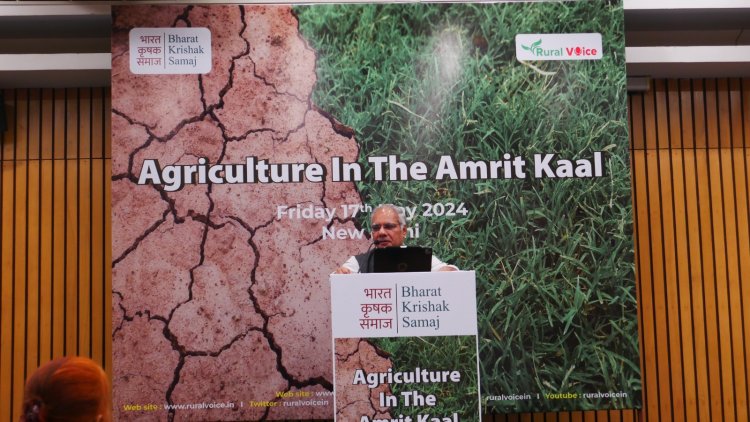
Speaking on ‘The Future of Agriculture’, Siva Kumar, Group Head-Agri & IT Businesses, ITC, said low farmers income is a big issue, as also water crisis, top soil erosion, and threat from climate change.
He said that as per IMF projection, India’s contribution to the GDP in the world economy in the next five years will be 18 percent. “But, are we taking our farmers along in this path of growth?” he asked, adding that if agriculture progressed and farmers remained poor, it is not good.
Kumar also said if productivity goes up, there should be a market as well. “We should be well-balanced,” he said, noting that consumer prices should be balanced with prices farmers got so that more money reached the hands of the cultivators. He referred to various hazards of climate change and also advocated a balance between “domestic price and exports”.
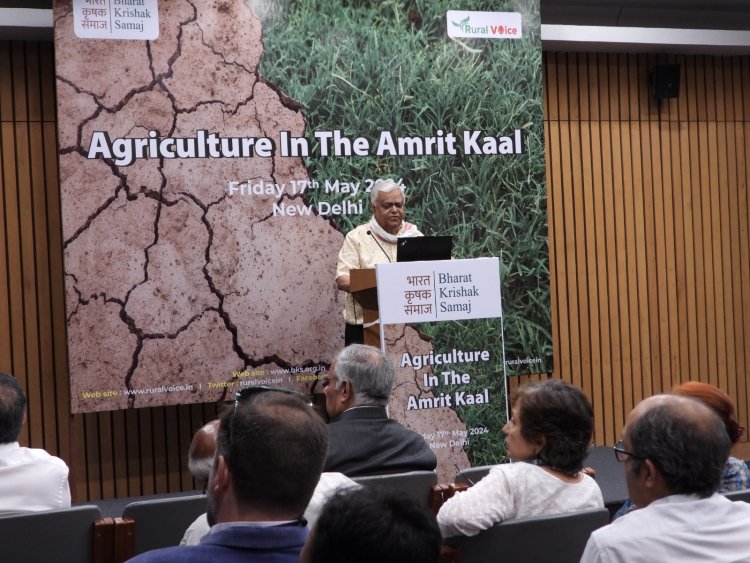
Speaking on ‘Agriculture Research and Development’, C D Mayee, former Chairman Indian Agricultural Scientists Recruitment Board, said R&D is the need of the hour in this Amrit Kaal.
He said several institutions were created in the last 15 years for carrying out R&D, but these do not have adequate infrastructure, and their laboratories are not up to the mark.
Mayee said while consumption of milk, eggs, and other dairy products were increasing, the expense on this sector was not proportionate.
He advocated adequate funding for agriculture education and agriculture research during Amrit Kaal, saying R&D in agriculture will go a long way in mitigating poverty.
Throwing light on ‘Credit and Risk’, Samir Shah, Co-founder & Managing Trustee - Dvara Holdings, cited the Economic Survey 2020-21 to point out that agriculture is a vital sector in the country’s economy, contributing 17-18 percent to GDP. This sector employs more than 45 percent of the country’s population, he said.
Shah said the credit market for small farmers was ripe for expansion and spoke of the need for unlocking opportunities in agriculture credit. In this context, he referred to the formation of Farm Producers’ Organisations (FPOs).
On the topic of “Digitalization”, Purushottam Kaushik, Head-Centre for the 4th Industrial Revolution WEF, said 70 percent of the farmers in the country do not have access to formal financial services and credit.
He also pointed out that over 80 percent of groundwater is used for agriculture, while 15 percent of food grains get wasted in post-harverst.
Kaushik suggested value chain transformation and digital public infrastructure to address key challenges of inclusivity, sustainability and efficiency.
He also spoke on issues like intelligent crop planning, smart farming, farmgate to fork and data governance using AI by taking technology to farmers.
Speaking on “Market & Market Places”, Unupom Kausik, Sr. Vice President, Olam India, said the country witnessed the Green Revolution in the 60s, White Revolution in the 70s, Yellow Revolution in the 80s and Golden Revolution in the 90s.
But the problems include small and fragmented holding, depending on monsoon and low investment in the agriculture sector, he said.
“In India, agriculture is a tripartite agreement among God, Government and Farmers,” he said in a lighter vein.
On the topic of ‘Water Crisis’, Balwinder Sidhu, former Commissioner, Agriculture, Punjab government, said water scarcity in the country was a major challenge during Amrit Kaal.
By 2030, the country’s water demand is projected to be twice the available supply, he said, voicing serious concern over continuously decreasing per capita availability of water and diminishing ground water level.
“India is fast moving from being a water-stressed to a water-scarce country,” he noted.
Climate change, Sidhu said, was causing substantial damage and irrevocable losses to terrestrial, fresh water, coastal and ocean ecosystems. “The choice we make now will determine the future times,” he added.



 Join the RuralVoice whatsapp group
Join the RuralVoice whatsapp group

















